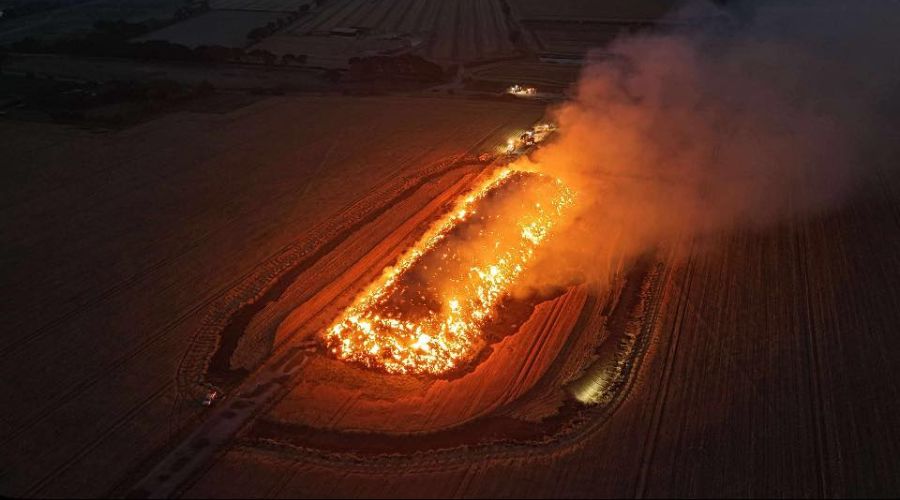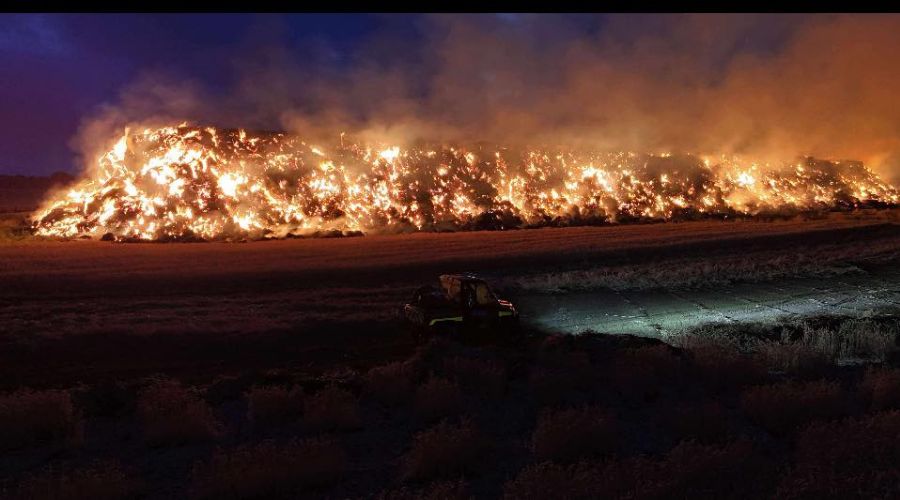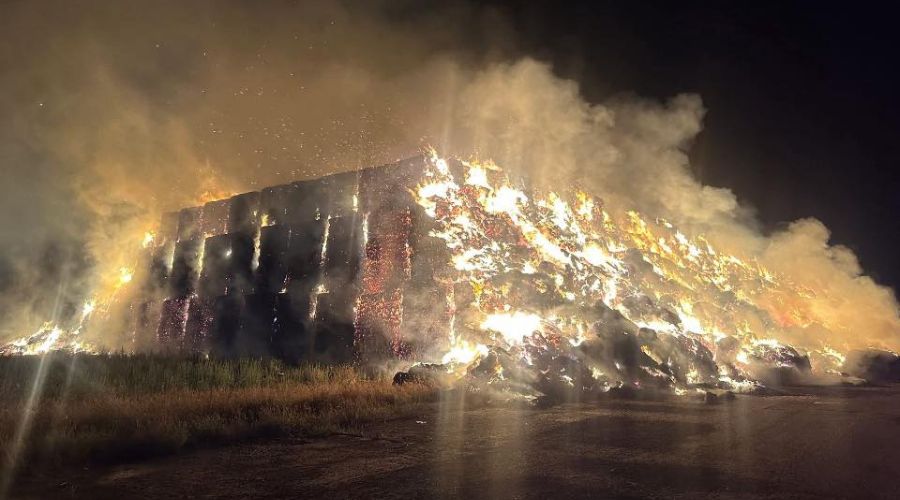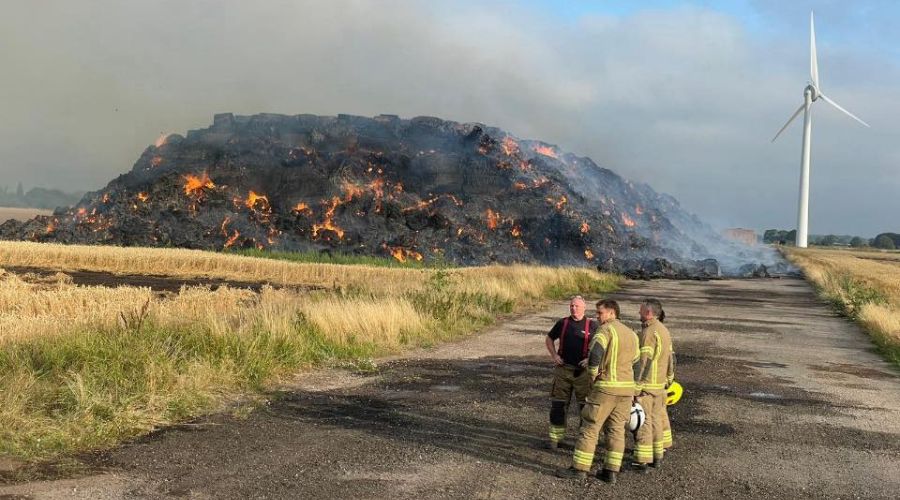Nottinghamshire: 12,000 straw bales destroyed in fire
15th July 2025
10 fire engines were sent to tackle a large blaze at a former RAF base in Nottinghamshire after 12,000 straw bales caught fire.

Firefighters from Ashfield Fire Station were called to the Wigsley Old Airfield just after midnight on Sunday, 13th July. Crews were working throughout the night to get the fire under control.
At the height of the incident, there were 10 fire engines, the water bowser, the command support unit and multiple rural firefighting vehicles in attendance, the force confirmed.over
12,000 straw bales, which equates to around 6,500 tonnes of straw, have caught fire.


A spokesperson for the Ashfield Fire Station said: “This fire will take a long time to extinguish and looks like firefighters will be on scene for the next few days, if not longer, working to fully extinguish the fire and determine a cause.”
No injuries have been reported. Local residents have been urged to avoid the area.
READ MORE: Tractor “fully alight” within two minutes in Staffordshire blaze

Profitable Farming said: “Absolutely mental, whether this was arson or a mistake in moisture control this is an heartbreaking example of a loss that could see a farm struggle for a very long time.
“Let’s hope no one was hurt and that they will be able to find enough bedding for the winter after a catastrophe likes this.”
How to prevent fires on your farm
- Regular maintenance – Ensure that your equipment is clean and maintained before every harvest activity. Regular equipment blowdowns and lubrication schedules can help avoid fires within your equipment.
- Help firemen find you – Provide the fire and rescue service’s control centre with what3words from the entrance of your farm and wait for the first appliance. They will then ask you to guide them to the scene of the incident.
- Know where your water supplies are – Ensure that any available water supplies on your farm are accessible to fire and rescue crews. If you know where your nearest fire hydrant is, ensure that this is clear and accessible.
- Have contingency arrangements in place – Consider using cultivators to put in fire breaks where safe to do so. If you have water bowsers available to extinguish spot fires ensure that they are near and full of water.
- Store safe – Where possible avoid storing bales near main roads to deter would-be trespassers and arsonists. Store pesticides and fertilisers securely and remember it’s critical to let us know if these products are involved in a fire due to the specific risks they pose.
- Check conditions and consult the Fire Severity Index before planning harvesting activities – This will help you identify the best time of day to start your harvesting to avoid the most extreme weather zones. Also, check wind direction and where possible harvest in the direction of the already cut crop and not the unharvested crop.
READ MORE: Suffolk: Firefighters tackle large blaze involving several farm buildings
READ MORE: Essex: Farm buildings and vehicles destroyed in fire
Read more farm safety news.

